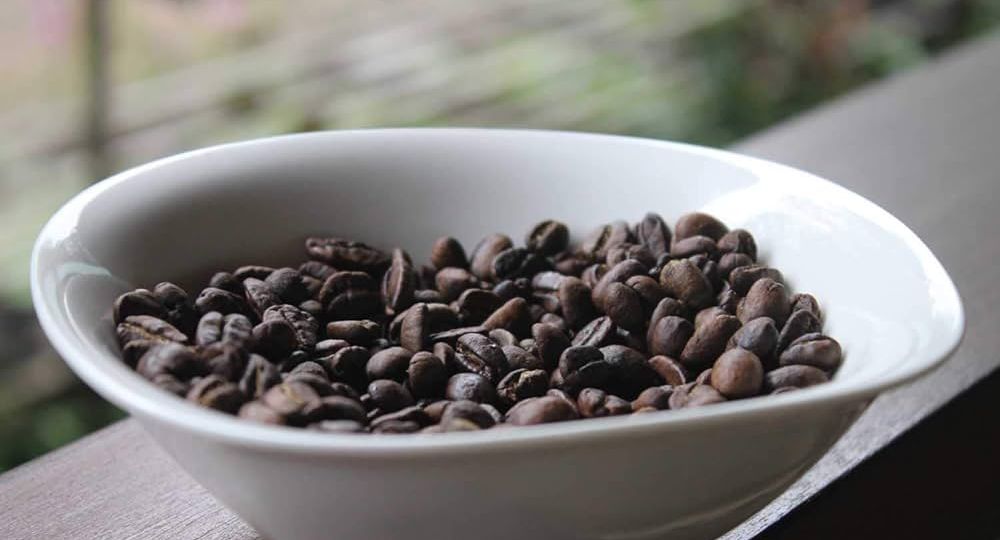
In recent years, the trend of smoking coffee beans has sparked both curiosity and controversy among coffee enthusiasts and health experts alike. This practice, which involves the inhalation of smoke generated from coffee beans, has been explored as an alternative way to experience the flavors and effects of coffee.
Despite its novelty, smoking coffee beans raises questions regarding its health implications, safety, and overall impact compared to traditional coffee consumption methods.
How to Smoke Coffee Beans
Smoking coffee beans can be achieved through various methods, each imparting distinct flavors and aromas to the beans. Common techniques include using a smoker or a grill, where the beans are exposed to smoke generated from wood chips at low heat. This process requires careful control of temperature and smoke intensity to avoid burning the beans while infusing them with the desired smoky flavor.
Types of Coffee Beans Suitable for Smoking
The choice of coffee beans plays a crucial role in the smoking process. While there is no specific type of bean that is universally best for smoking, the bean’s origin, roast, and inherent flavor profile can influence the outcome. Experimentation with different types of beans may be necessary to discover which varieties best complement the smoky notes introduced during the smoking process.
Wood Choices for Smoking Coffee Beans
The selection of wood chips is equally important, as different woods contribute varying flavors and aromas to the coffee. Options range from hickory and mesquite to fruitwoods like applewood and cherry, each adding a unique dimension to the coffee’s taste. The choice of wood should harmonize with the coffee’s natural characteristics, enhancing rather than overpowering the bean’s flavor profile.
Risks of Smoking Coffee
Smoking coffee introduces several health risks that are significant when compared to traditional coffee consumption. Among these, respiratory and lung diseases stand out, as the inhalation of coffee smoke can lead to irritation and damage within the respiratory system.
This can result in symptoms such as coughing and long-term shortness of breath, with prolonged exposure increasing the risk of developing more severe lung diseases. Additionally, the combustion process can produce harmful chemicals similar to those found in tobacco smoke, including tar and carbon monoxide, which are known to contribute to cardiovascular diseases and cancer.
Caffeine overdose presents another risk. Unlike drinking coffee, where caffeine is absorbed gradually, smoking coffee can lead to a rapid and unpredictable intake of caffeine. This can result in symptoms ranging from minor (such as jitters and increased energy) to severe (including trouble sleeping and more serious health issues).
Comparison with Traditional Coffee Consumption
Contrasting with the risks of smoking coffee, traditional consumption—when done in moderation—offers several health benefits without the severe adverse effects associated with inhalation. Studies have shown that drinking 2-5 cups of brewed coffee daily can lower the risk of type 2 diabetes, heart disease, and other conditions, thanks to coffee’s rich antioxidant and nutrient profile.
This method of consumption ensures that the body benefits from coffee’s positive aspects without the harmful side effects of smoking it.
Legal and Social Aspects
The Role of Social Media
Social media platforms have played a pivotal role in the rise of coffee smoking, primarily by spreading awareness and generating curiosity among younger audiences. Platforms like Instagram, Twitter, YouTube, and TikTok have facilitated the spread of this trend through tutorials, personal experiences, and challenges shared by users and influencers alike.
This digital exposure has contributed significantly to its popularity, making the practice seem accessible and intriguing despite the health risks.
Legal and Safety Considerations
From a legal perspective, there are no specific regulations against smoking coffee, unlike tobacco or other controlled substances. However, this lack of regulation does not imply safety or endorsement of the practice.
The potential health risks associated with smoking coffee make it a concern for public health officials and medical professionals, who advise against it due to the significant adverse effects it can have on an individual’s health.
Alternative Methods to Enjoy Coffee
To enjoy the rich flavors of coffee without the health risks associated with smoking, consider exploring a variety of brewing methods. Traditional techniques such as pour-over, French press, and cold brew offer distinct taste profiles and aromas, allowing the subtleties of different coffee beans to shine through. Additionally, coffee can be incorporated into recipes, enhancing both sweet and savory dishes with its complex flavors.
Health Benefits of Traditional Coffee Consumption
Moderate, traditional consumption of coffee has been linked to numerous health benefits. Research suggests that drinking coffee can reduce the risk of several diseases, including type 2 diabetes, heart disease, and certain forms of cancer. Coffee’s high antioxidant content also contributes to overall health, supporting the body’s defense against oxidative stress.
FAQs
- Is smoking coffee safe? Smoking coffee poses several health risks, including respiratory and cardiovascular diseases, making it a less safe option compared to traditional consumption.
- Can smoking coffee lead to caffeine overdose? Yes, smoking coffee can result in a rapid intake of caffeine, increasing the risk of overdose symptoms such as jitters and insomnia.
- Are there any benefits to smoking coffee? There are no known health benefits associated with smoking coffee. Instead, it carries significant health risks.
- What are safer alternatives to enjoy coffee? Safer alternatives include traditional brewing methods like drip coffee, espresso, and cold brew, which offer both enjoyment and health benefits without the risks associated with smoking coffee.
Summarizing Key Points
The practice of smoking coffee beans, while novel, carries significant health risks, including respiratory and lung diseases, cardiovascular diseases, and the potential for caffeine overdose. In contrast, traditional coffee consumption offers numerous health benefits, including reduced risk of chronic diseases and the antioxidative properties of coffee.
Final Recommendations
Given the health implications associated with smoking coffee and the benefits of traditional coffee consumption, it is advisable to prioritize health and safety over following trends. Embracing the diverse world of coffee brewing methods provides a safer and more enriching way to enjoy coffee’s rich flavors and health benefits.









